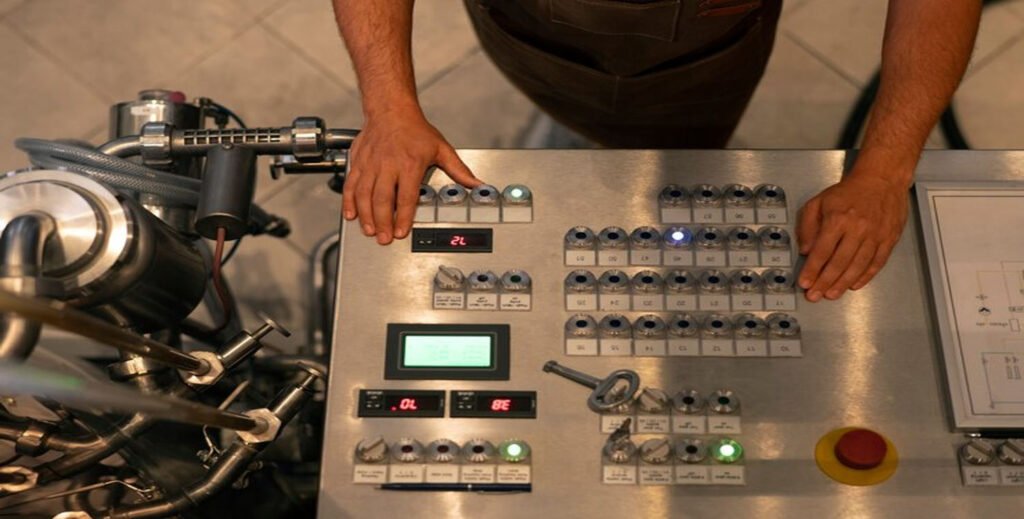Exploring the World of Idegion Machines: Innovation and Future Potential

Idegion machines represent a significant step forward in the world of technology.
The term “Idegion machine” might not be immediately familiar to many, but its role in technological advancements is becoming increasingly significant. As technology continues to evolve, new tools and machines are emerging that cater to various industries, facilitating growth, and reshaping the way we approach problems. Idegion machines, though still an emerging concept, are poised to make a substantial impact across sectors like healthcare, artificial intelligence, manufacturing, and robotics. In this article, we will explore the potential of Idegion machines, their applications, the technology behind them, and the future they promise.
What is an Idegion Machine?

An Idegion machine is a cutting-edge device designed to optimize processes, enhance productivity, and solve complex problems in real-time. Derived from the term “ideation” and “generation,” Idegion machines focus on both the conceptualization of new ideas and their practical application. This makes them particularly useful in areas where innovation and efficiency are key.
At their core, Idegion machines blend artificial intelligence (AI), machine learning (ML), automation, and advanced computing to provide a multifaceted solution to various industries. These machines are not limited to one specific function but instead adapt and evolve based on the environment in which they are used, making them highly versatile and impactful.
Key Features of an Idegion Machine
While the specific design and functionality of an Idegion machine may vary depending on its application, several key features are central to its design:
1. Artificial Intelligence Integration
Idegion machines leverage AI to simulate human-like decision-making and problem-solving abilities. By using algorithms, data processing, and machine learning, these machines can analyze vast amounts of data and make decisions in real time. Whether applied in healthcare diagnostics, financial analysis, or product design, AI enables Idegion machines to optimize solutions and predict outcomes with remarkable accuracy.
2. Adaptability
One of the most remarkable aspects of Idegion machines is their adaptability. They are built to handle a wide range of tasks and can adjust their behavior and responses depending on the context. This adaptability is powered by AI algorithms that allow the machine to learn from its environment and experiences, becoming increasingly efficient over time. In contrast to traditional machines, which are often designed for specific functions, Idegion machines can transition between roles and applications seamlessly.
3. Automation Capabilities
Idegion machines also have a strong emphasis on automation. In many cases, their purpose is to reduce the need for manual intervention, speed up processes, and minimize human error. From manufacturing assembly lines to logistics, automation is revolutionizing industries, and Idegion machines are at the forefront of this shift. They can execute tasks with precision, perform quality control, and even handle maintenance or troubleshooting autonomously.
4. Real-Time Data Processing
Another hallmark of Idegion machines is their ability to process and interpret data in real-time. In industries like finance, healthcare, and logistics, timely access to data and information is critical. These machines are equipped with sensors, processors, and high-speed connectivity, enabling them to handle large datasets quickly and accurately. This ability ensures that the machine can respond to immediate needs and make decisions that are relevant to the current situation.
5. Collaboration with Humans
While Idegion machines are capable of performing many tasks autonomously, they are designed to collaborate with human users. These machines act as tools that enhance human productivity rather than replace it. They are intuitive, user-friendly, and can be programmed or trained by their human counterparts to perform specific tasks. This human-machine collaboration is a key feature that distinguishes Idegion machines from fully autonomous robots or AI systems.
Applications of Idegion Machines
The versatility and innovative nature of Idegion machines make them valuable across a wide array of sectors. Below are some of the primary fields where they are being utilized or are expected to play a major role:
1. Healthcare
In healthcare, Idegion machines are revolutionizing diagnostics, treatment planning, and patient care. These machines are being employed to analyze medical data, predict disease outcomes, and suggest personalized treatment options. For example, in the field of radiology, an Idegion machine could assist in interpreting medical images, identifying anomalies, and suggesting diagnoses, ultimately improving the accuracy of medical professionals.
Moreover, Idegion machines can help streamline hospital operations, from optimizing patient flow to managing inventory. AI-powered machines can predict trends in patient volume, automate administrative tasks, and ensure that resources are allocated efficiently.
2. Manufacturing and Industry 4.0
In manufacturing, Idegion machines are a key part of the Industry 4.0 revolution. These machines can perform tasks such as assembly, quality control, and predictive maintenance, ensuring that production lines are efficient and free from human error. By using sensors and IoT (Internet of Things) technology, they can monitor equipment performance, detect potential issues before they cause downtime, and even perform repairs autonomously.
Idegion machines can also assist in product design, using AI to generate new ideas and prototypes based on customer feedback and market trends. This can significantly speed up the design process and lead to more innovative products.
3. Artificial Intelligence and Data Science
The combination of machine learning and AI within Idegion machines makes them particularly valuable for data analysis and decision-making. For example, in fields like financial analysis or risk assessment, these machines can process large volumes of financial data to predict market trends, evaluate investment opportunities, and even detect fraudulent activities.
Idegion machines can also assist in natural language processing (NLP), enabling businesses to gain insights from customer interactions, social media, and other unstructured data. These capabilities open up new opportunities for businesses to enhance customer experiences, tailor products, and improve their overall strategies.
4. Robotics and Automation
Idegion machines also have a strong presence in the field of robotics. They are increasingly being used in various applications such as warehouse management, logistics, and even in complex environments like space exploration. Their ability to adapt to various tasks, process real-time data, and collaborate with humans makes them ideal candidates for jobs traditionally performed by human workers.
For instance, in logistics, Idegion machines can optimize warehouse operations by autonomously sorting packages, managing inventory, and ensuring timely deliveries. The use of AI-powered robots helps reduce operational costs while improving efficiency.
Challenges in the Development and Deployment of Idegion Machines
While Idegion machines hold tremendous promise, their development and deployment come with several challenges. One of the key concerns is the potential for job displacement. As these machines become more capable of performing tasks traditionally carried out by humans, there is a fear that certain industries could see significant reductions in employment opportunities.
Additionally, the integration of AI and machine learning into Idegion machines raises concerns about ethical considerations, data privacy, and security. Since these machines collect vast amounts of data, it is crucial to ensure that this data is used responsibly and securely.
Another challenge is the complexity involved in designing and programming these machines. Idegion machines need to be highly specialized and adaptive, requiring extensive development and ongoing updates. Ensuring that they function correctly across a wide range of industries and use cases adds another layer of difficulty.
The Future of Idegion Machines
As we look toward the future, Idegion machines are set to play a pivotal role in the evolution of many industries. Their ability to streamline operations, enhance productivity, and drive innovation places them at the forefront of the technological landscape. From healthcare to manufacturing, their potential is limitless, offering solutions to some of the most pressing challenges faced by modern society.
The advancement of AI, machine learning, and robotics will continue to refine the capabilities of these machines, making them even more efficient and effective. In the coming years, we can expect Idegion machines to become more integrated into everyday life, working seamlessly alongside humans to improve the quality of our work, health, and overall lifestyle.
Conclusion
Idegion machines represent a significant step forward in the world of technology. They embody the fusion of innovation, efficiency, and adaptability, enabling industries to tackle complex problems and create solutions that were once thought impossible. As these machines continue to evolve, their potential to shape the future of automation, healthcare, manufacturing, and many other sectors will only grow.



